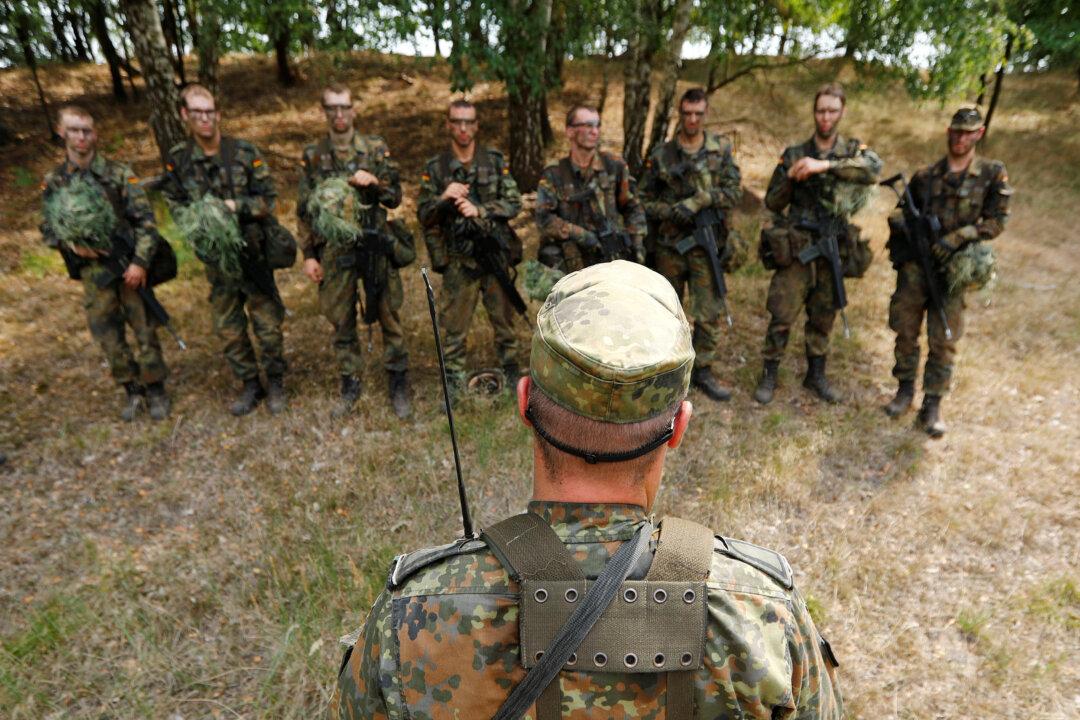Stock prices of defense companies rose after German Chancellor Olaf Scholz announced that his country would raise military spending, and build up its forces and capabilities, as a response to Russia’s invasion of Ukraine.
Germany’s 2022 federal budget will set aside a one-off sum of 100 billion euros for the country’s military, Scholz said in a policy statement on Feb. 27. The country will invest “more than two percent” of its GDP into defense “year after year,” he added. Berlin had spent roughly 1.53 percent of its GDP on defense last year according to data from NATO. By raising military spending, Germany aims to match targets set out by NATO back in 2006.





